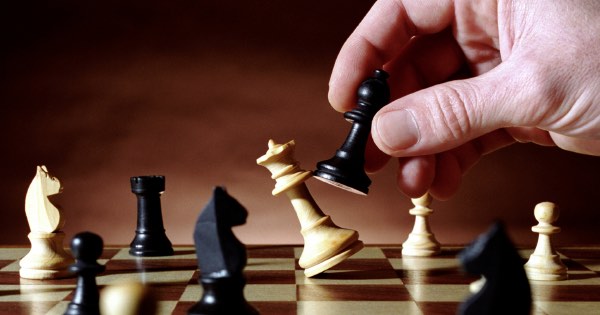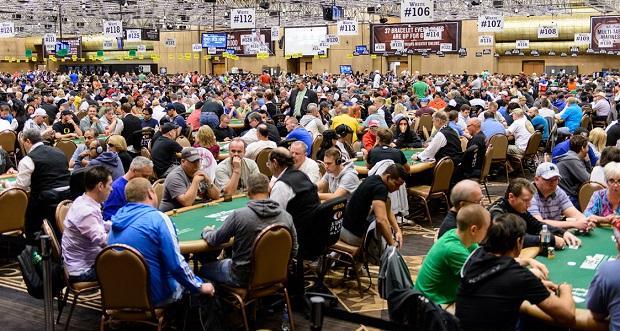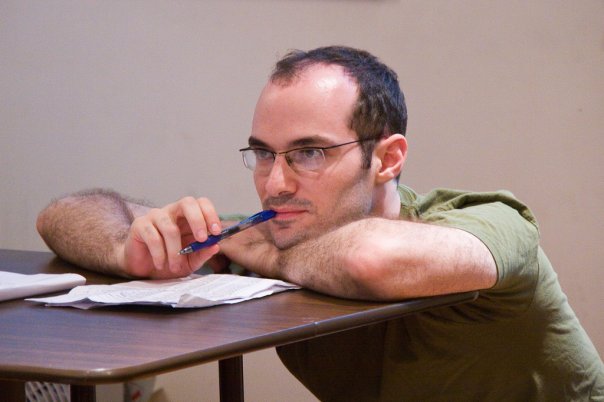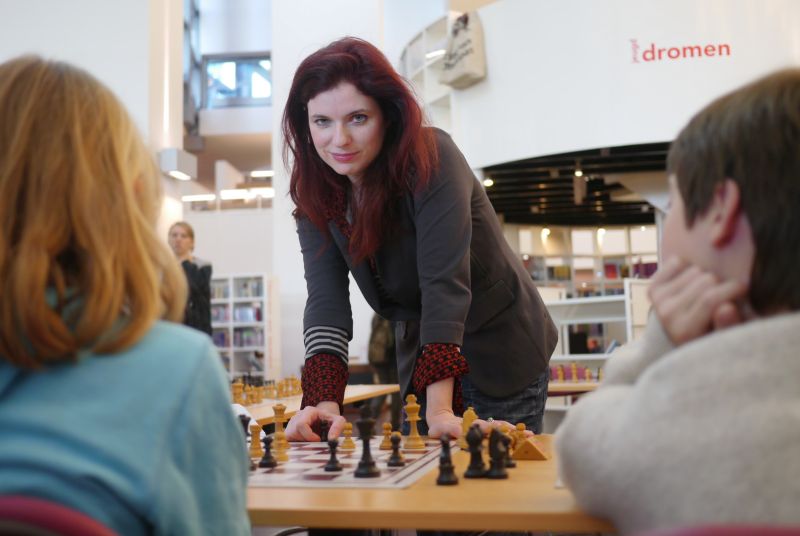8 Jul
(Photo: Jennifershahade.com)
What do Dan Harrington, Dan Smith, Ylon Schwartz and Jennifer Shahade all have in common? Lots of money and poker titles, sure, but all of these names were master class chess players or champions before exchanging the 64 black-and-white squares for a career on the green felt!
To many, this change of game might seem a bit strange, the mastery of chess, the quintessential game of intelligence and patience, being somewhat at odds with the cut-and-thrust of poker tournaments in loud casinos.
But, for those like myself who have mastered both games to a certain degree (chess more so than poker it has to be said), there is a real crossover between the two games. However, the movement is way more chess-to-poker rather than poker-to-chess – and here are the reasons why…
Money? Show me the money!
This is number one on the list by far, and the reasoning is simple. Unless you are a top 20 player in the chess world, you likely won’t be earning more than about $30,000 a year – unless you devote yourself to full-time coaching, but then you’re a coach not a player!
Imagine spending 20 years of your life reaching international standard at chess, and then finding that you’re still only making a wage which you could easily make at least double in any profession which needs similar talents: a maths professor, working in the finance industry, business analyst, whatever.
And then you realise that all those hours spent analysing chess positions and learning theory could be spent doing much the same with poker, and for the same work you could be earning $100K+ per year, with the chance of hitting the jackpot and taking down a huge event? Sounds pretty attractive, especially since taking down a $100K chess tournament would involve you being the World Champion or one of his closest rivals!

Hustling chess or the Main Event?
Ylon Schwartz was a 38-year old with a passion for chess back in 2008. He had attained the FIDE Master title (same as myself) which put him on the lower rungs of international chess, but way above 99.5% of anybody else on the planet who plays the game. But hustling chess in the parks would probably provide him with more money than touring the US chess scene!
Fortunately for Schwartz, a friend introduced him to poker back at the millennium, and he had a reasonable run of low-level cashes. And then, in 2008 he found himself playing the Main Event – going on a heater and finishing in 4th spot, taking down $3,795,974 and setting himself up – if not for life because of the IRS – then certainly for a comfortable few years as a poker pro!
So what was it about his chess playing that helped him along the road to such huge poker success?
Schwartz explains it shortly before his final table run, stating that:
Chess players are trained to have excellent memories. In poker, you need to remember betting patterns. Poker is a game of incomplete information,” whereas “Chess is a game of complete information,” and this is where the big difference lies – but he explained that, “All the patience I got in chess really helps me out”, though he added “Chess is a purer game. It is my passion. I love poker, too, but I don’t know who gets together to play poker for fun. There is always something on the line.”
Of course, sitting at a chess board for up to five or six hours every day has to be useful when you then find yourself grinding for hours online or facing long, long sessions at the World Series.
He also thinks that the strategic skill required in chess helps out in poker, balancing bets with a good hand to ensure you get paid. The thought processes match up, a fact attested to by another chess player who has dabbled in the poker world to some extent.

Owning Tom Dwan
Greg Shahade may not be as well-known among the poker fraternity as his sister Jennifer, but it was he who took a prop-bet from his friend Tom Dwan – a $50,000 match-up on the chessboard which, “in order to compensate for Greg’s Shahade obvious advantage in chess skill, Dwan was given “rook odds” (Greg would start the game minus a rook),” according to reports of the match.
Shahade was an International Master at the time – a step in the rankings above players like Schwartz and myself – and just one (very difficult!) level away from Grandmaster status. Dwan’s chess expertise was somewhat unknown – but a rook is a big price to pay before the game has started!
Nevertheless, Shahade won the first two games of the best of three match to scoop the $50K – and what do you think the hardest aspect of the match was for the chessplayer?
That’s right, the money! Chessplayers, even the world’s best, simply don’t play for such high sums on a regular basis! Even though Shahade was only getting a 10% cut plus some extra make-up as his friend staked him, the $7800 was a big payday.
As Shahade described afterwards:
With great relief the match was over. Immediately after its conclusion ‘Danny’ –his unnamed friend who roomed with Dwan – had 78 $100 dollar bills ready for me, which he counted out in groups of ten on the table. I have to admit that I was satisfied by the swift payment. ‘Tony’ (actually Tom Dwan, for some reason given a pseudonym in Shahade’s match report) was very relaxed and courteous for someone who had just lost $50,000. He had lots of questions about the game and about what I thought my true chances were in the match. When he asked whether I thought he had a 1 in 20 chance to win, I didn’t know what to say. I worked so hard during the games that I felt some sense of danger. Whenever you work hard during a chess game you need to worry a little bit.However, looking back, it’s hard to imagine him actually winning. He simply has to survive so many pitfalls and then after all of that, he has to demonstrate the technique to beat me from a winning position. My guess is that in general a 2400+ player (IM strength) should be able to give rook odds to someone around 1200-1400, and knight odds to someone around 1400-1650 (lower club level players but still much more proficient than complete beginners). I’m not sure of the exact figures, but this would be my rough estimate.”
Shahade then highlights the financial aspect of his win some more – the money side which most poker-players will simply laugh at, when he says:
The entire match was a surreal scene, as I remember my younger days of playing relatively good players for anything from $2-$10 per game, and being extremely happy winning maybe $50-$100 from playing chess.”
If it only seems to be the money that’s the reason for chess masters swapping their careers for the poker world…then you’d very probably be right!
Some chess players, however, don’t like the idea of poker at all! Boris Gelfand, who has challenged for the world title and been in the top echelons of chess for three decades now, stated last year that he chooses to play for a club where the lunchtime talk “does not revolve around poker”, a dig at fellow world-class players such as Alexander Grischuk who seem to love the green baize as much as the black-and-white board.

Women and chess and poker
If poker is a game where women struggle to find acceptance or comfort in a male-dominated tournament scene, then chess has suffered similar troubles, but offers a different route.
The top female players have their own tournaments, and they can play in ‘Open’ events too – where there tend to be quite impressive ‘female’ prizes on offer. Still, this doesn’t compare to poker, which may be one of the reasons why poker pros such as Jennifer Shahade ply their trade mainly on the poker tables these days.
The 36-year old Philadelphian is a Women’s Grandmaster at chess, the author of ‘Chess Bitch’ –an eye-opening account of how today’s young female chess players are successfully knocking down the doors to the traditionally male game – and more recently, she has won over $1/4million playing poker, including winning the TonyBet OFC World Title for $122,000.
As a Mindsports Ambassador for PokerStars, Jennifer Shahade is a deep thinker about both games – but she knows the differences too. She explained to Bluff magazine that when it comes to ‘poker tells’ – those give-away signs that someone is bluffing or has the nuts or whatever:
You might get information that your opponent doesn’t like a situation. But there’s really not much you can do with that. You can’t be like “OK, let’s double the stakes now.” There’s not much you can do to take advantage if you get a tell because you’re still just going to play the best move you have, regardless.”
Shahade has also been at the forefront of the chess-poker combination events which PokerStars have run both in Isle of Man and Prague among other areas. Players participate in a rapid play chess event, generally about seven rounds long, and then carry over 1000 extra chips for every chess game they win into the poker tournament.
Who this favours, exactly, is unclear. Do the extra chips (say 15,000 starting stack instead of 10,000 compensate for a poker players generally higher level when it reaches the green felt stage? As ever with poker – it depends! A skilled ‘chess player and poker player’ will have an advantage; a less-skilled chess player who knows a bit about poker probably couldn’t use the chips effectively, except perhaps more by chance.
So, it’s an easy leap for chess players to make in general. The money is more attractive, the skill-set has enough of a crossover that learning poker isn’t a giant lead, and the proof of the pudding is in the eating as they say!

Dan Harrington, who won the Main Event in 1995, was a very good chess player before poker took over, Reaching US Master strength – almost as good as Schwartz or myself – is a good achievement.
Dan Smith, who regularly plays the highest-stakes games and can boast of over $10million in tournament earnings, recalls his early days as a chess player in an iGaming interview two years ago.
At a certain point, when money was tight, I had my eyes set on getting a chess scholarship at the University of Maryland. I knew I had to get to a specific ranking to accomplish my goal, but at the same time that was the moment where chess stopped being fun. I was doing it just to get higher up on the ranks and that’s why poker was so refreshing, as I had spent so many hours studying chess and the fun in that was completely gone. Poker was a new game, it was exciting and when you’re a beginner at something you pick up things so fast and that was a lot of fun.”
Whether an elite-level chess player could or will ever make it to the elite level at modern poker is hard to say – it would require a complete switch of games, plus talent and luck – but I wouldn’t bet against it at some point!
Unfortunately, it won’t be me, given my horrible chess showing last week in Prague and today’s horrific poker session!
